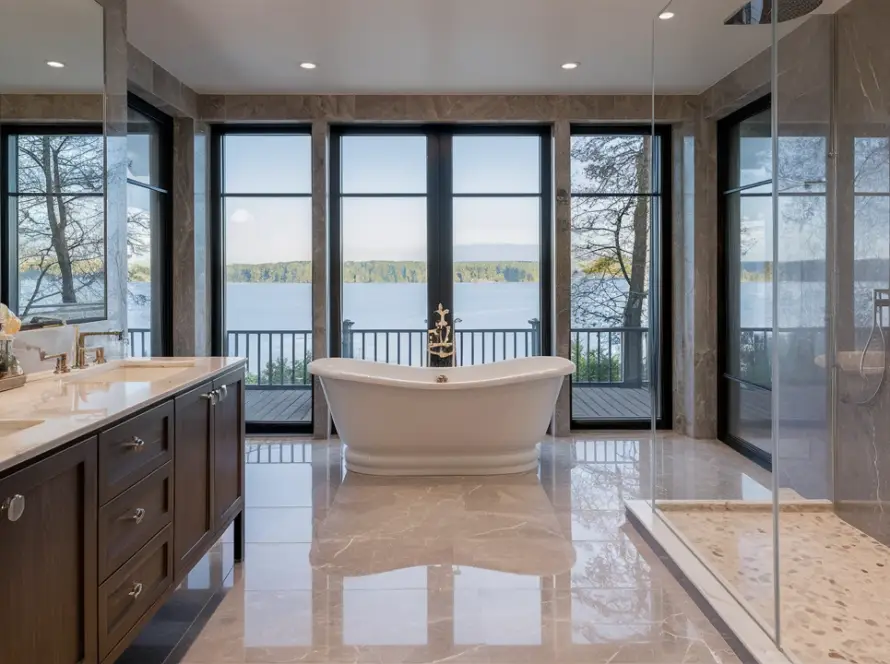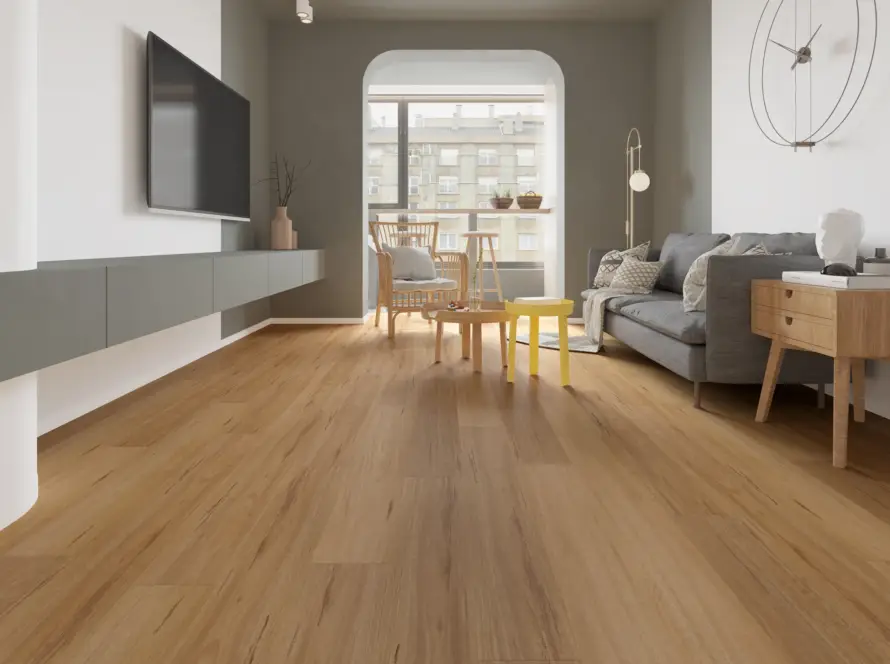In recent years, a revolutionary flooring option has been making waves in both residential and commercial spaces. Stone Plastic Composite (SPC) flooring has rapidly gained popularity due to its exceptional durability, water resistance, and eco-friendly.
This article delves into the world of SPC flooring, exploring its composition, benefits, and why it might be the perfect choice for your next flooring project.
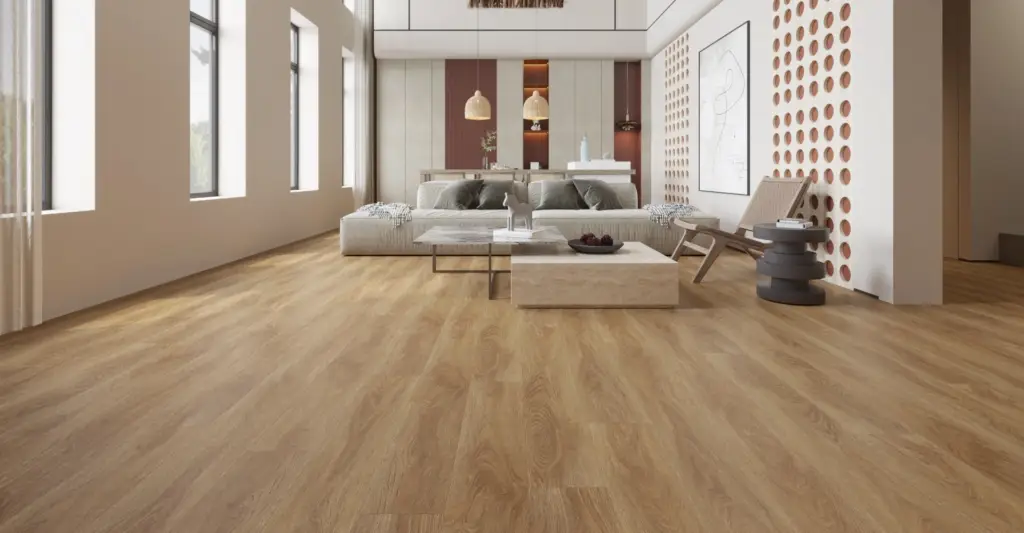
What is SPC Flooring?
SPC flooring, short for Stone Plastic Composite flooring, is a cutting-edge rigid core luxury vinyl flooring product. It combines the best attributes of natural stone and advanced polymer technology to create a highly durable and versatile flooring solution.
The origins of SPC flooring can be traced back to the evolution of luxury vinyl tile (LVT) flooring. As manufacturers sought to improve upon traditional vinyl flooring, they developed rigid core options, with SPC emerging as a superior alternative to wood plastic composite (WPC) cores.
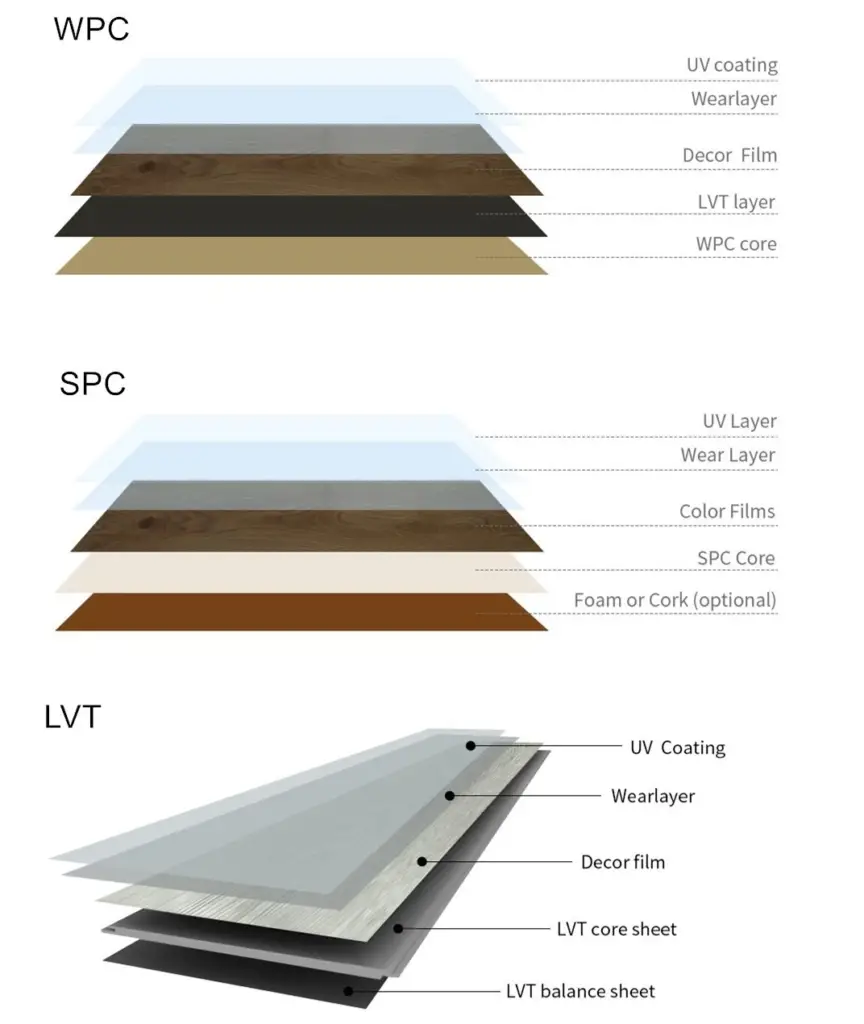
The Composition of SPC Flooring
SPC flooring is engineered with multiple layers, each contributing to its overall performance and appearance:
- UV Coating: A protective layer that enhances scratch and wear resistance
- Wear Layer: Typically 0.3mm to 0.7mm thick, providing additional durability
- Decor Film: High-quality printed layer that mimics natural materials like wood or stone
- Core Layer: The heart of SPC flooring, consisting of 97% combination of PVC and Calcium in a 1:3 ratio
- Padding Layer: Usually made of IXPE (Irradiated Cross-Linked Polyethylene), EVA (Ethylene-Vinyl Acetate) or XPS for added comfort and insulation
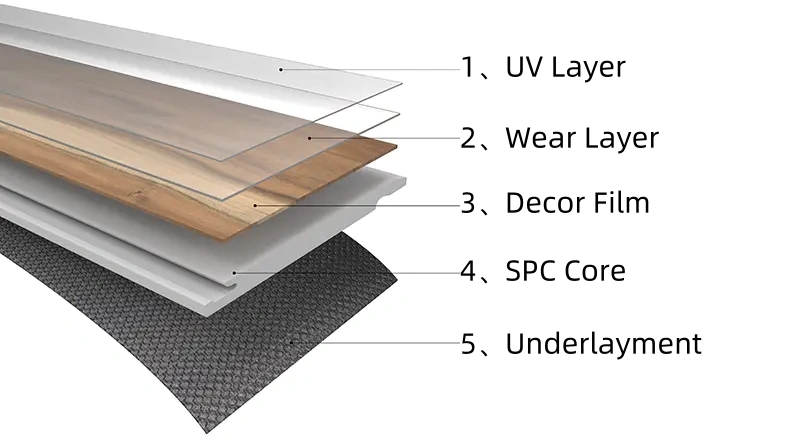
Key Features and Benefits
SPC flooring offers a wide range of advantages that contribute to its growing popularity:
- Durability: Highly resistant to dents, scratches, and heavy foot traffic
- Water Resistance: 100% waterproof, making it ideal for bathrooms and kitchens
- Easy Installation: Click-lock systems allow for simple DIY installation
- Cost-Effectiveness: More affordable than many natural flooring and ceramic tile
- Eco-Friendly Options: Some manufacturers offer sustainable and recyclable SPC products
Pros and Cons
Like any flooring option, SPC has its strengths and limitations:
Pros:
- Exceptional durability and stability
- Waterproof properties
- Easy installation and maintenance
- Wide range of design options
- Affordable compared to natural materials
Cons:
- Can feel less comfortable underfoot than wood flooring or engineered flooring
- Cannot be refinished like real wood floors
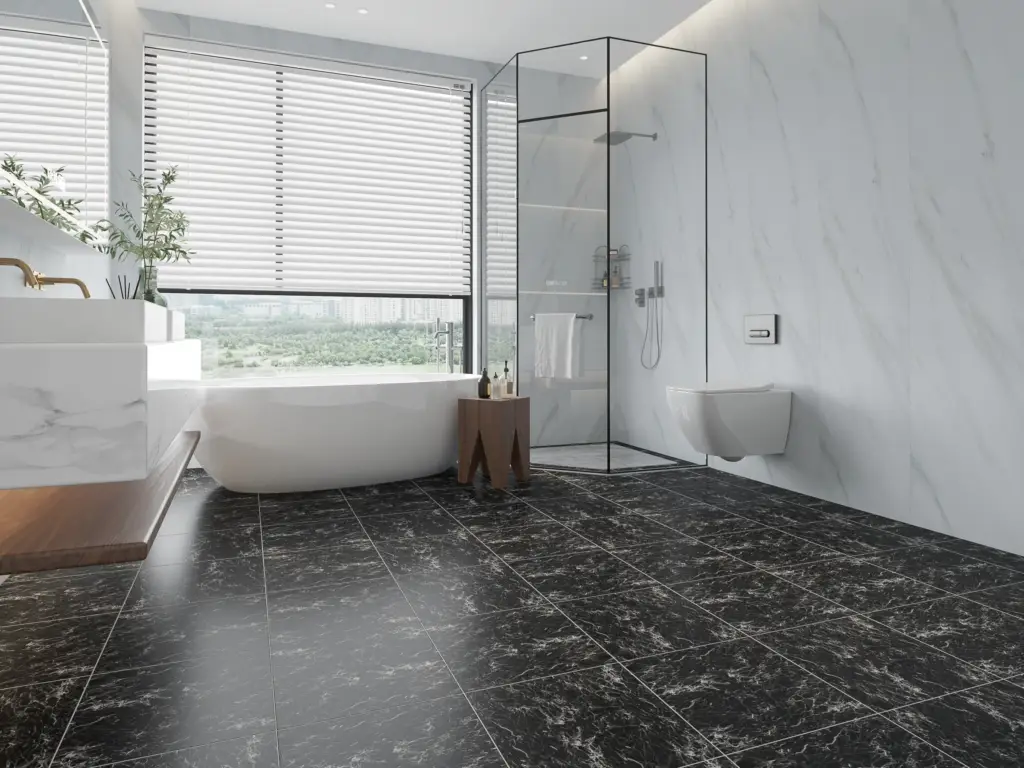
Cost Considerations
SPC flooring is generally more affordable than many natural flooring options while offering superior performance. The average price ranges from $6 to $15 USD per square meter, depending on various factors:
- Thickness of the core layer
- Size and dimensions
- Quality of the wear layer
- Brand reputation
- Use of virgin vs. recycled PVC in the core layer
Conclusion
SPC flooring represents a significant leap forward in flooring technology, offering a perfect blend of durability, aesthetics, and practicality. Its water-resistant properties, easy installation, and wide range of design options make it an attractive choice for both residential and commercial applications.
While it may not fully replicate the feel of natural materials, SPC flooring’s numerous benefits and cost-effectiveness position it as a top contender in the modern flooring market. As a professional flooring manufacturer in China, we believe SPC flooring is poised to continue its upward trajectory in popularity.
FAQs
Yes, SPC flooring is 100% waterproof, making it an excellent choice for areas prone to moisture.
With proper care, SPC flooring can last 10 years or more. HRFLOOR offers warranties of 15 years or longer.
In many cases, yes. SPC flooring can often be installed as a floating floor over existing hard surfaces, provided they are clean, dry, and level.
Yes, SPC flooring is an excellent choice for pet owners due to its scratch resistance, water resistance, and easy cleaning properties.
No, unlike hardwood floors, SPC flooring cannot be refinished. However, its durable wear layer typically ensures a long lifespan without the need for refinishing.
Yes, SPC flooring can be an excellent substitute for ceramic tiles in many applications. It offers several advantages over ceramic tiles, including easier installation, water resistance and cost-efficiency.


